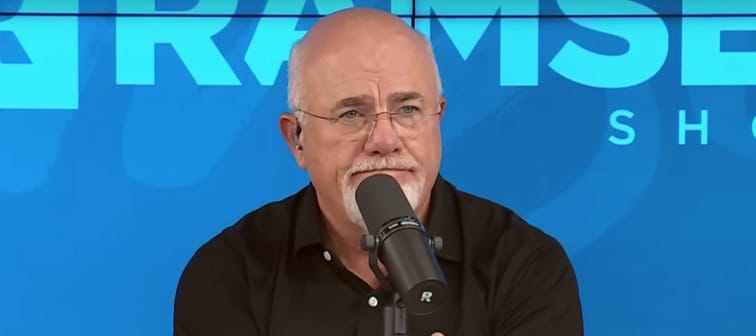College tuition crisis
There’s no denying it, going to college is massively expensive — and it’s only getting worse. From 2010 to 2022, the cost of college tuition rose 12% on average annually, according to the Education Data Initiative. On average, going to a public college for a four-year program is 23 times more expensive than it was in 1963.
Higher fees have compelled students to rely on either student loans (which is now a $1.7-trillion crisis) or their parents. Family income and savings account for roughly half the source of payment for college costs in academic year 2022-23, according to data published by Sallie Mae.
Kinzi’s daughters are aged 17, 19 and 21. One has already moved out and thus isn’t receiving support from her parents anymore. “I don’t pay for other people’s rent,” she told Ramsey and his co-host John Delony, explaining the reasoning behind her rules around supporting her girls through college.
“There are so many colleges within 20 minutes of our home that there is no reason for you to not live at home.”
But that hasn’t changed her youngest’s mind about wanting to go away for school. Besides the cost of living on campus, she would also need to pay for a food program that Kinzi says could cost “$2,500 to $4,000 a year.”
Kiss Your Credit Card Debt Goodbye
Having a single loan to pay off makes it easier to manage your payments, and you can often get a better interest rate than what you might be paying on credit cards and car loans.
Fiona is an online marketplace offering personalized loan options based on your unique financial situation.
When you consolidate your debt with a personal loan, you can roll your payments into one monthly installment. Find a lower interest rate and pay down your debt faster today.
Get StartedTough love
Ramsey says her daughter is free to make her own choice — but Kinzi isn’t obligated to pay for it.
“It’s very simple, she’s opting out of your rule,” says Delony.
“She gets none of your money,” Ramsey agrees. “She opted out.”
In fact, Ramsey doesn’t want her to pay for groceries or co-sign any student loans either — but he encourages her to speak with her husband to ensure they’re on the same page before laying down the law. This will help them present a united front and push back on their daughter’s demands.
Kinzi’s daughter can still choose to go to college away from home, Ramsey insists, but must finance it all herself. “It’s really heart-breaking to watch people you love do stupid-butt things,” he says, referring to taking on thousands of dollars of debt for school. “But you don’t get to vote anymore once they’re adults.”
Many Americans seem to agree with Ramsey’s sentiment. On average, they say a child should be financially responsible for car payments and credit card bills by the age of 20 and for student loans by the age of 23, according to a survey by Bankrate.
However, the same survey also found a gap between what parents expect and what they actually do. A whopping 68% of parents with adult children have made or are currently making financial sacrifices to support them, results from the same Bankrate survey show.
So while it might be hard to stand by and watch, Kinzi letting her daughter make her own decisions around her future might be an education for them both.
Sponsored
Follow These Steps if you Want to Retire Early
Secure your financial future with a tailored plan to maximize investments, navigate taxes, and retire comfortably.
Zoe Financial is an online platform that can match you with a network of vetted fiduciary advisors who are evaluated based on their credentials, education, experience, and pricing. The best part? - there is no fee to find an advisor.






